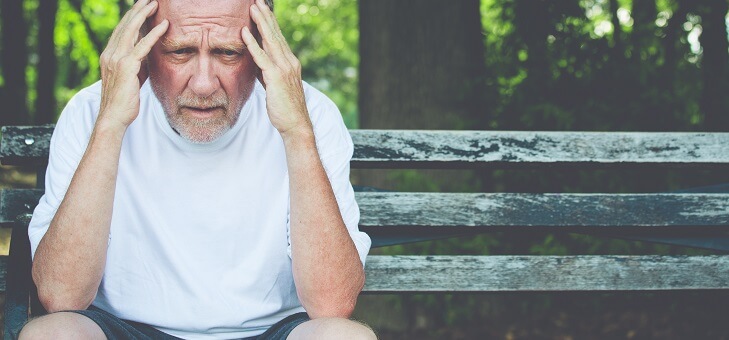Stress can be an all-consuming beast. Not only does it overwhelm your brain, but it can have a physical impact, too.
If the current crisis is constantly on your mind, you may have noticed some changes in your body. You might be getting more breakouts when you normally have clear skin, perhaps your hair is feeling limp or falling out, or maybe your nails are breaking more easily.
When you’re already stressed, these changes in your body are adding insult to injury – but there are things you can do to help. Here’s how anxiety can impact your skin, hair and nails, and what you can do to combat it.
Your skin
Doing the right things by our body can become increasingly difficult when we’re stressed. “When we feel stress, especially when confronted with circumstances we cannot change, this can affect us both mentally and physically,” explains Dr Howard Murad, dermatologist and founder of Murad Skincare. “Our appetite may be affected, we crave the wrong foods, sleep is affected due to worry, and limited exercise can impact physical and mental wellbeing, which ultimately reflects on our skin.”
This is because our “skin mirrors our health”, says Dr Murad. “When we consider the skin and the brain are affected by the same hormones and neurotransmitters (such as the stress hormone cortisol) we can see how everything is connected.”
It’s an obvious point, but eating right, drinking enough water and exercising will boost your mood – even if all you want to do is sit on the sofa and watch box sets.
Read more: Seven skincare steps you can’t miss
“I’m a great believer in the power of touch and facial massage,” says Dr Murad. “Touch is vital for emotional and physical health, helping to release toxins while relaxing the mind; essential when combating the effects of stress. Not only does self-massage help to drive skincare ingredients deeper into the skin, but it firms muscles, aids lymphatic drainage and calms the mind.”
Instead of skipping your normal skincare routine, use it as an opportunity to practise self-care and take some time for yourself. Dr Murad recommends using serums with “relaxing and reviving ingredients, such as cannabis seed oil, neuropeptides, niacinamide and hyaluronic acid”.
If your sleep is disrupted, Dr Murad says breathing techniques will help calm your body down. “All these factors can significantly reduce stress, improve moisture retention and calm the mind, which ultimately has a powerful effect on the skin,” he says.
Your hair
Stylist and global creative director for Living Proof, Michael Shaun Corby, explains how hair grows in four stages. First is the growing phase (which can last two to six years), then the transitioning phase “where the growth slows down and the hair starts to leave the follicle”, he says, then the resting phase where hair stops growing and finally, when “the hair leaves the follicle and new hairs start to grow”.
This is a continuous cycle, with two-thirds of your hair being in growth phase and one third in the other three. “When you are experiencing stress, your hair follicles in the growth phase can undergo changes and start to become more active in the other three phases, such as resting or leaving the follicle, which can lead to hair loss,” explains Mr Corby.
Read more: The reasons your hair may be falling out
If stress means a well-rounded diet has gone out the window, this could also be affecting your hair. “The hair texture becomes thinner when there’s not enough nutrients, so eating plenty of protein and a healthy diet is key,” the stylist explains. Mr Corby’s answer to boosting hair health? “Massaging your scalp. Helping the blood circulation and moving the scalp is really good for maintaining healthy hair and scalp, helping to prevent hair loss.”
Your nails
Your nails might be suffering because you can’t keep up with regular manicure appointments, but your state of mind could also be having an impact. “Healthy nails require vitamins and minerals like protein, biotin, silica, magnesium, zinc, and iron,” explains Imane Badouri, founder of Spa Concierge. “Stress makes it harder for our bodies to absorb the nutrients they need, so nail ridging, pitting, and shredding are all side-effects – weakening the nail.”
It’s also more than likely that you’ve reverted to nervous tics such as biting or rubbing your nails, which Ms Badouri says “causes more damage to the nail bed”.
Luckily, there are plenty of things you can do to combat any damage done to your nails. Ms Badouri recommends wearing gloves if you’re doing work with your hands, regularly remembering to file and buff your nails, and using “a moisturiser or cream on your hands, feet, and in your nail folds, to keep your skin hydrated and protected” – a particularly wise move if your hands feel sore from constant washing.
Read more: How to care for your nails at home
For an extra bit of TLC, Ms Badouri says: “Try applying nail oil, vitamin E oil, coconut oil, or olive oil to your nails, to help prevent ridges from forming.”
Do you notice any of these physical symptoms when you are stressed? How do you combat them?
– With PA
If you enjoy our content, don’t keep it to yourself. Share our free eNews with your friends and encourage them to sign up.



